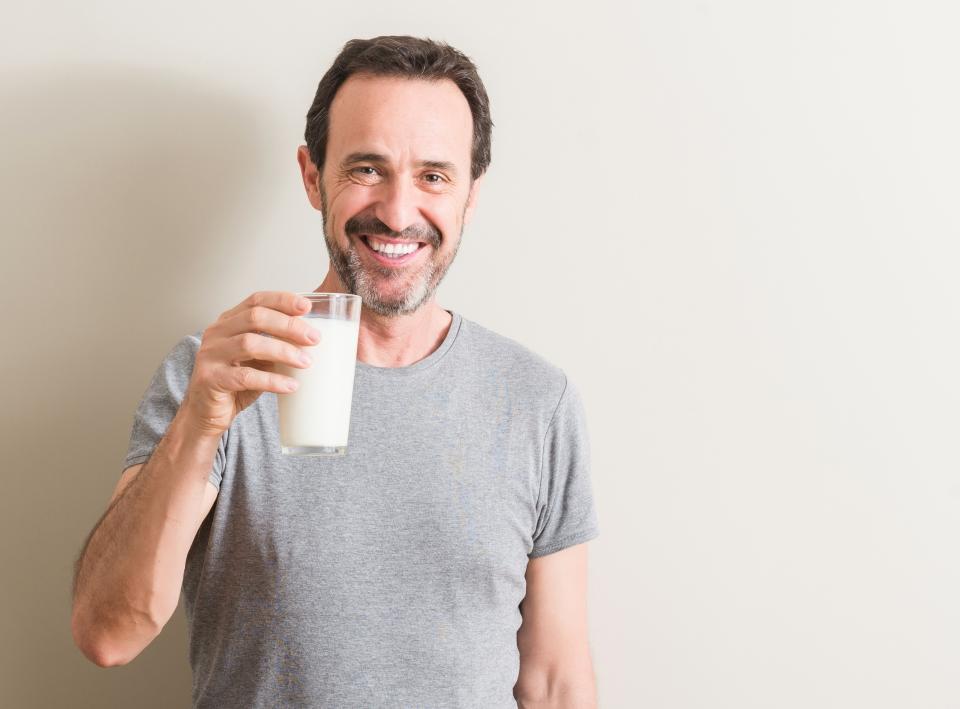New Study on Dairy and Prostate Cancer: A Critical Analysis
A new study was published recently in the American Journal of Clinical Nutrition that examined the link between dairy intake and prostate cancer risk. The study received some attention when it was included in an article in the Globe and Mail.

On the surface, the study showed an association between dairy intake and prostate cancer risk among the participants. However, a closer analysis reveals some important limitations about how those findings may be interpreted.
Most notably, the study by Orlich and colleagues1 followed a very particular group – 28,737 Seventh-day Adventist men living in the United States and Canada for 7.8 years on average. This population is known to follow particular dietary habits that may not have been well accounted for in a study of this nature and do not reflect those of the general population; therefore, the findings may not be applicable to the wider population.
Some additional details and limitations of the study include:
- It is an observational study. As such, it cannot show a cause-and-effect relationship, only associations, as acknowledged by the authors;
- Diet was only measured once, at the start of the study, so it is not clear if any changes may have occurred during the ~ 8 years of follow-up that could impact the results. This limitation is also acknowledged by the authors;
- The observed association is mainly related to reduced-fat milk. Yogurt, cheese, and full-fat milk were not associated with an increased risk;
- Other factors (unknown to the researchers or unmeasured) may have influenced the findings.
- The authors themselves note that those who had higher dairy intakes were also those with lower intakes of vegetable-based products. While the authors did control for nuts, seeds and legume consumption, they did not account for fruit and vegetable intake in their analysis, and this could be important as fruit and vegetable intake has been shown to be associated with lower prostate cancer risk in some studies.2,3
- Other unknown foods consumed along with milk, such as rich sugary desserts may be responsible for the association. Therefore, dairy might only be “guilty by association.”
The totality of the evidence, as judged by some of the world’s leading health authorities – the World Cancer Research Fund4 and the WHO International Agency for Research on Cancer5 – does not support a strong association of dairy product intake and increased risk of prostate cancer.
Refer to the article on Milk Products and Prostate Cancer for more information regarding the scientific evidence.
READ MOREReferences
- Orlich MJ et al. Dairy foods, calcium intakes, and risk of incident prostate cancer in Adventist Health Study–2. Am J Clin Nutr 2022;116:314–324; Accessed August 25, 2022.
- Cirne F et al. Modifiable risk factors for prostate cancer in low- and lower-middle-income countries: a systematic review and meta-analysis. Prostate Cancer Prostate Dis 2022; doi: 10.1038/s41391-022-00570-1; Accessed August 25, 2022.
- Ubago-Guisado E et al. Evidence update on the relationship between diet and the most common cancers from the European Prospective Investigation into Cancer and Nutrition (EPIC) Study: A Systematic Review. Nutrients 2021 Oct 13;13(10):3582. doi: 10.3390/nu13103582; Accessed August 25, 2022.
- World Cancer Research Fund/American Institute for Cancer Research. Diet, Nutrition, Physical Activity and Cancer: a Global Perspective, Continuous Update Project Expert Report 2018. Available at dietandcancerreport.org ; Accessed August 25, 2022.
- International Agency for Research on Cancer/WHO. World Cancer Report: Cancer Research for Cancer Prevention. Lyon: IARC. 2020; Accessed August 25, 2022.

